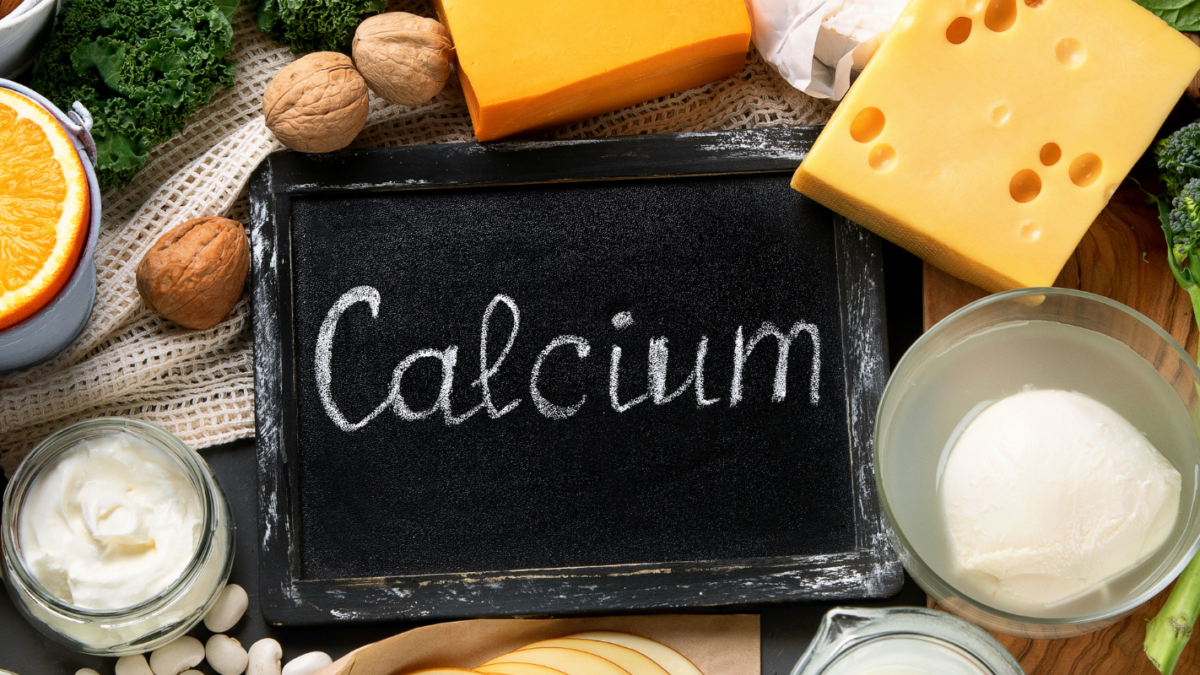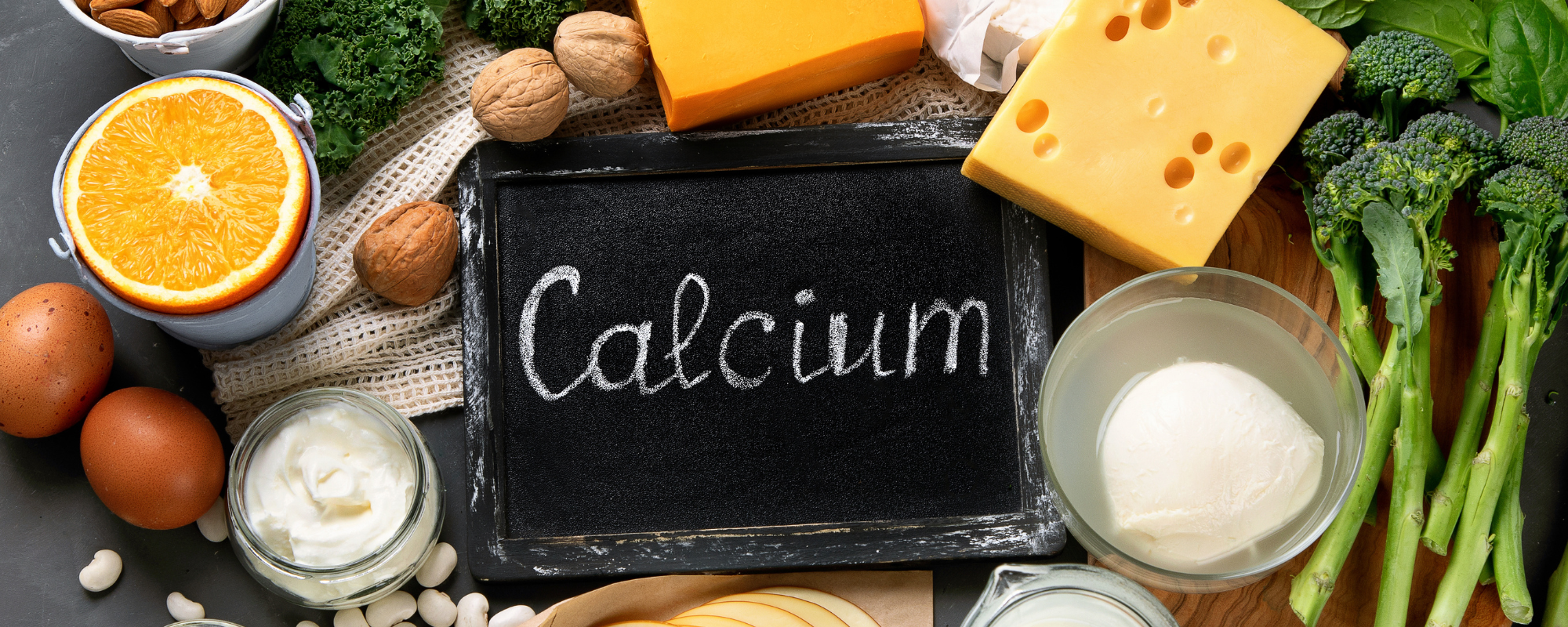
Determining Your Nutrition Goal
February 28, 2024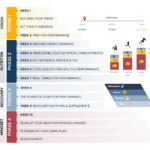
I signed up to the Performance Programme…. now what?
March 1, 2024
Determining Your Nutrition Goal
February 28, 2024
I signed up to the Performance Programme…. now what?
March 1, 2024Calcium
What is Calcium?
Calcium is a mineral that plays a crucial role in various physiological functions in the body, including bone and teeth formation, muscle function, nerve transmission and hormone secretion.
Why do we need Calcium?
- Bone Health: building and maintaining strong bones and teeth.
- Muscle Function: helps muscle contraction and relaxation.
- Nerve Transmission: Calcium ions assist in transmitting nerve signals.
- Blood Clotting.
3 Foods Richest in Calcium:
- Dairy Products: Milk, cheese & yoghurt.
- Leafy Greens: Spinach, kale, cabbage & broccoli.
- Sardines & Canned Salmon: also a good source of omega-3 fatty acids & rich in calcium due to their edible bones.
Daily Recommended Intake:
For adults, the recommended daily allowance (RDA) of Calcium varies depending on age and gender:
- Adults (19-50): 1000mg/day
- Women (50+) & men (70+): 1200mg/day
Practical Examples:
- Milk (250ml): ~300mg of calcium.
- Yogurt (225g): 250-300mg of calcium.
- Spinach (1 cup): ~240mg of calcium.
- Sardines (3oz): ~325mg of calcium.
Symptoms of Calcium Deficiency:
- Bone Health Issues:
- Osteopenia: Reduced bone mineral density.
- Osteoporosis: Weakened, fragile bones, more susceptible to fractures.
- Muscle Cramps, Tingling or Numbness.
- Dental Problems: Increased risk of cavities and weakened tooth enamel.
- Fatigue.
- Brittle nails.
- Skin problems: Dry or other dermatological issues.
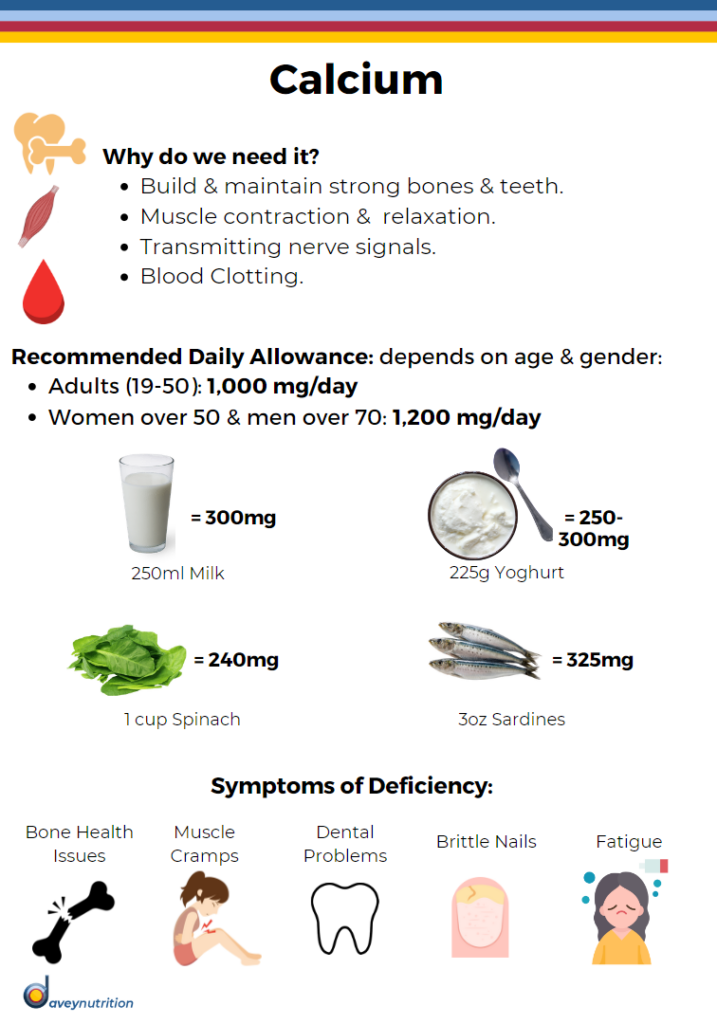
Download this factsheet – Calcium Factsheet

Want to ensure you’re getting enough Calcium in your day? Check out our FREE MEAL PLAN:
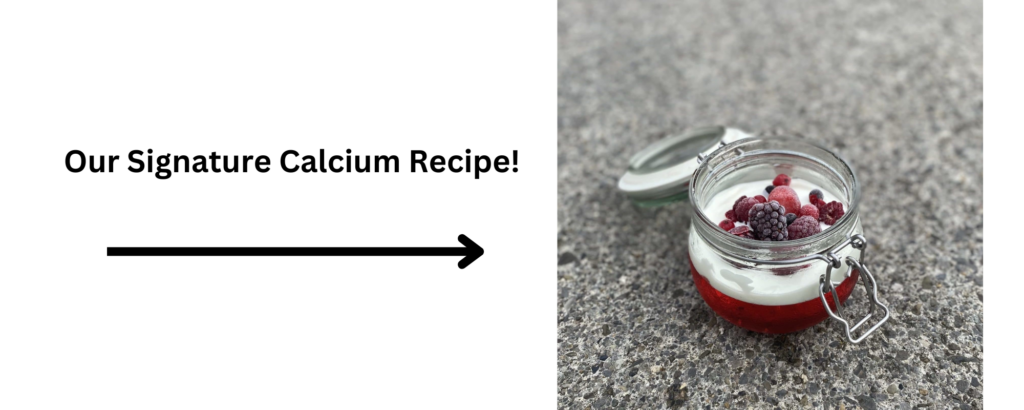
Check out our signature Calcium recipe here – Raspberry Jelly Delight
Calcium
What is Calcium?
Calcium is a mineral that plays a crucial role in various physiological functions in the body, including bone and teeth formation, muscle function, nerve transmission and hormone secretion.
Why do we need Calcium?
- Bone Health: building and maintaining strong bones and teeth.
- Muscle Function: helps muscle contraction and relaxation.
- Nerve Transmission: Calcium ions assist in transmitting nerve signals.
- Blood Clotting.
3 Foods Richest in Calcium:
- Dairy Products: Milk, cheese & yoghurt.
- Leafy Greens: Spinach, kale, cabbage & broccoli.
- Sardines & Canned Salmon: also a good source of omega-3 fatty acids & rich in calcium due to their edible bones.
Daily Recommended Intake:
For adults, the recommended daily allowance (RDA) of Calcium varies depending on age and gender:
- Adults (19-50): 1000mg/day
- Women (50+) & men (70+): 1200mg/day
Practical Examples:
- Milk (250ml): ~300mg of calcium.
- Yogurt (225g): 250-300mg of calcium.
- Spinach (1 cup): ~240mg of calcium.
- Sardines (3oz): ~325mg of calcium.
Symptoms of Calcium Deficiency:
- Bone Health Issues:
- Osteopenia: Reduced bone mineral density.
- Osteoporosis: Weakened, fragile bones, more susceptible to fractures.
- Muscle Cramps, Tingling or Numbness.
- Dental Problems: Increased risk of cavities and weakened tooth enamel.
- Fatigue.
- Brittle nails.
- Skin problems: Dry or other dermatological issues.

Download this factsheet – Calcium Factsheet

Want to ensure you’re getting enough Calcium in your day? Check out our FREE MEAL PLAN:

Check out our signature Calcium recipe here – Raspberry Jelly Delight
Upgrade NOW
Upgrade NOW



